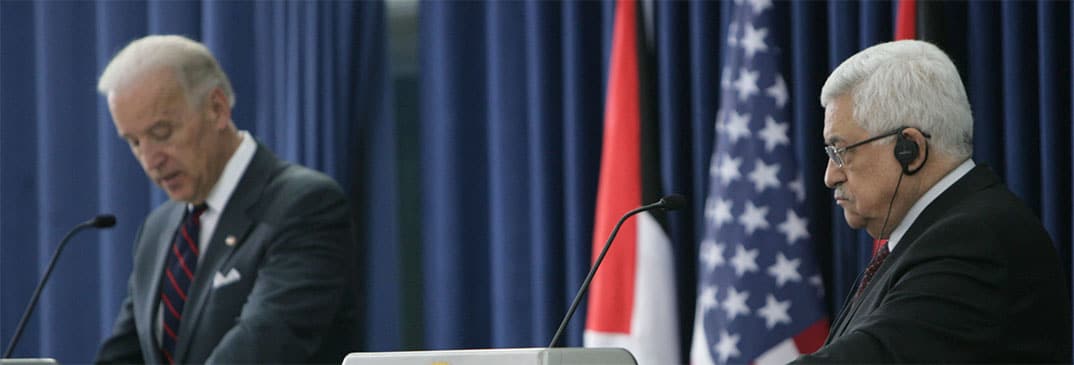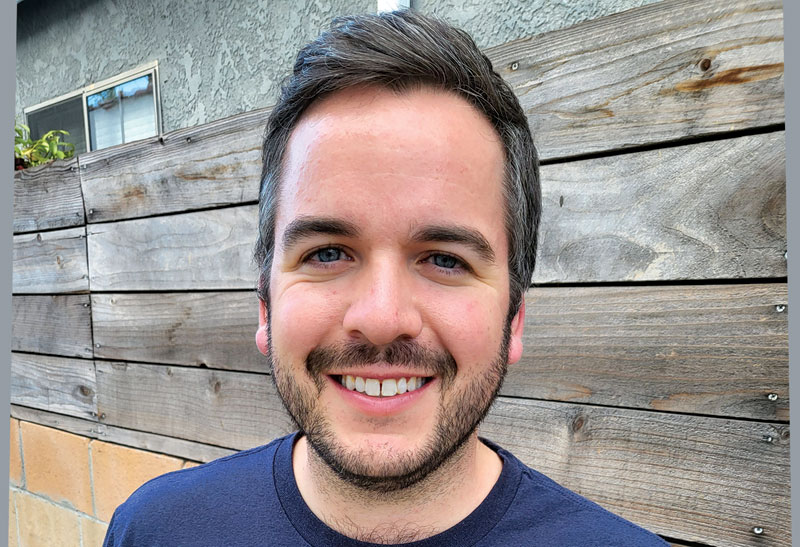
THE MEDIA LINE — Palestinian Authority President Mahmoud Abbas on Sunday congratulated US President-elect Joe Biden and Vice President-elect Kamala Harris, expressing hope that their administration will work to strengthen Palestinian-American relations following three years of diplomatic gridlock – not only with the United States, but also with Israel.
“As well as working for peace, stability and security for all in our region and the world, we hope that the new American administration will work on a serious political path based on international legitimacy and the two-state solution,” Abbas stressed.
With efforts toward reconciliation between the two main Palestinian movements – Fatah, the ruling party in the West Bank, and Hamas, which controls the Gaza Strip – once again stalled, along with attempts to schedule long-overdue Palestinian Authority elections, analysts have been questioning whether the factions have been dragging their feet, waiting for the results of the American vote.
A statement issued by the Fatah Central Committee on October 1, after senior delegations from Fatah and Hamas met in Istanbul, did not indicate when elections would be held or when Abbas would issue a presidential decree in this regard.
Abdul Haj Ibrahim, former chairman of the Department of Political Science at Birzeit University near Ramallah, told The Media Line that with confirmation of the results of the US presidential race, the intentions and seriousness of both Palestinian parties regarding achieving reconciliation and holding elections will become clear.
“It’s a real test of the Palestinian parties involved in the division and the coup [Hamas’ June 2007 seizure of the Gaza Strip], as a presidential decree still hasn’t been issued regarding the scheduling of elections, which are overdue,” Ibrahim said.
According to Ibrahim, it will become clear either this week or next as to whether the PA is “just buying time in order to return to futile negotiations – and there are signs indicating just that – or whether it will allow the people choose and hold elections, in order to… exercise their right to self-determination.”
Ibrahim doubts that there is a real intention to end the Palestinian division.
“The PA always bets on the American mediator to make the peace process succeed. It can’t see that the Americans are a party to the dispute, and not an objective mediator,” he complained.
“The PA always bets on the American mediator to make the peace process succeed. It can’t see that the Americans are a party to the dispute, and not an objective mediator.”
The Palestinian Authority imposed a boycott on the Trump Administration after the US recognized Jerusalem as Israel’s capital in December 2017.
In its statement, the Fatah Central Committee said understandings with Hamas had been ratified although it did not clarify their nature. The communique included general expressions devoid of any time frame, such as “The path of national partnership is an irreversible strategic choice” and “We work to develop this partnership through free and fair elections.”
Nabeel Shaath, an adviser to Abbas on international relations, denied to The Media Line that the Palestinian leadership was waiting until the results of the American presidential contest. He added, however, that “Palestinian elections require further understandings with Hamas.”
Shaath says the PA leadership is determined to achieve reconciliation and hold elections, and it is Hamas that must put forth a clear position.
“The idea is to form a Palestinian government of reconciliation prior to holding the elections, and in order to form that government, we need to reach an agreement with Hamas,” he explained.
“The idea is to form a Palestinian government of reconciliation prior to holding the elections, and in order to form that government, we need to reach an agreement with Hamas.”
When Abbas met with the World Jewish Congress President Ronald Lauder in Ramallah on October 10 following a call by Lauder for Palestinians to revive peace talks with Israel, the businessman advised the Palestinian leader to wait to schedule elections until after the American presidential vote.
Hazem Qassem, a Hamas spokesperson in Gaza, told The Media Line that the group categorically rejects linking Palestinian reconciliation and elections to changes in the region or at the international level, especially in terms of the American presidential vote and Biden’s electoral victory.
“The path of reconciliation must remain purely Palestinian,” he said.
“The path of reconciliation must remain purely Palestinian.”
“Whatever these changes may be, we must continue on our path, as our people suffer from the division…” Qassem elaborated. “We must now reunite our position and rebuild the Palestinian enterprise so as to represent all segments of the Palestinian people.”
When asked about the timing of the elections, he affirmed that Abbas was the only one authorized to issue decrees in this regard, although he added: “Conducting general elections for the Legislative Council, the [PLO’s Palestinian] National Council and the [PA] presidency must not be delayed or affected by any changes [in the region or abroad].”
Qassem says Hamas is pushing hard to achieve this and to allow the Palestinian people to choose their representatives.
Mustafa al-Sawaf, a Gaza-based writer and political analyst, also suggested to The Media Line that the delays in issuing a decree scheduling elections and in conducting more meetings between Fatah and Hamas were linked to the American political process.
“It [the US election] concerns the whole world, not only the Palestinians, and its results have to be clear to everyone, it doesn’t detract from the [importance of] negotiations between the two [Palestinian] parties, Sawaf said.
“The US election concerns the whole world, not only the Palestinians, and its results have to be clear to everyone, it doesn’t detract from the importance of negotiations between the two Palestinian parties.”
Nevertheless, he indicated that there had been an affirmation by both sides that efforts toward reconciliation would continue regardless of the results of the US presidential contest.
“Jibril Rajoub [of Fatah] and Saleh al-Arouri [of Hamas] confirmed that they will end the division, whether or not Biden emerges the victor because, regardless of who is in the White House, this shouldn’t affect Palestinian unity, where neither [Biden nor Trump] will change the American position that fully adopts the Israeli narrative,” Sawaf said.
“Hopefully both sides will reach an agreement during the next meetings,” he added.
PA Prime Minister Mohammed Shtayyeh expressed hope in a report published on Sunday that the new US administration would “recognize Palestine and prioritize the Palestinian issue on its agenda.”






















 More news and opinions than at a Shabbat dinner, right in your inbox.
More news and opinions than at a Shabbat dinner, right in your inbox.